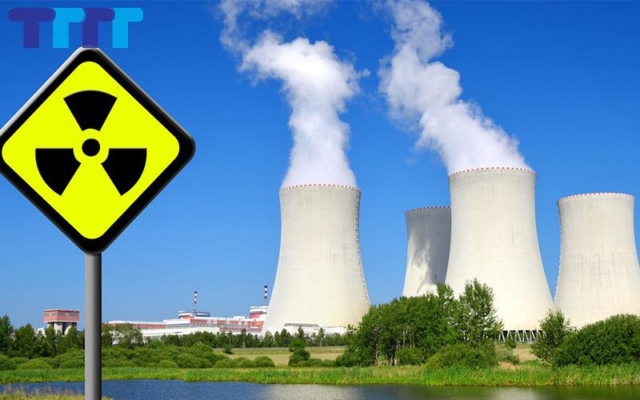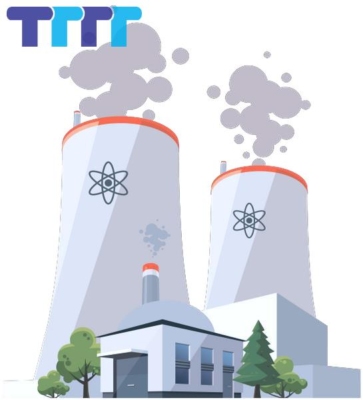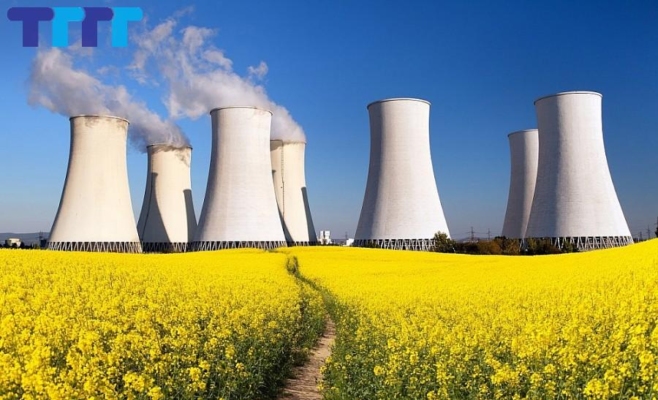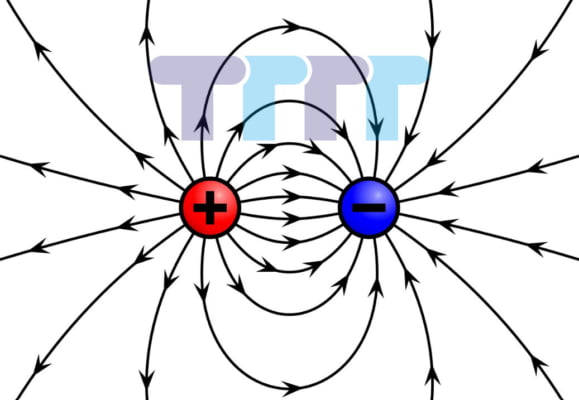Nuclear power is a potential energy source, with the ability to provide large amounts of electricity without emitting greenhouse gases such as carbon dioxide. However, it also comes with many controversies, safety concerns and radioactive waste disposal issues. In this article, we will look at the pros and cons of nuclear energy.
You may be interested in the following articles:
Contents
Advantages of nuclear power

Clean and efficient energy source
Nuclear power TTTT Global does not emit greenhouse gases such as carbon dioxide or other harmful gases during the electricity production process. This makes it a more environmentally friendly option than many other traditional energy sources such as coal or oil.
Additionally, nuclear energy is also extremely efficient. A small amount of nuclear fuel can produce a large amount of energy, enough to power millions of homes.
Ensuring energy security
Many countries depend on fossil fuel imports from other countries, which can pose risks to energy security and price fluctuations. Nuclear power can help reduce this dependence, ensuring a more stable and secure energy supply.
Advanced technology
Nuclear power technology is an advanced field of science and engineering that requires continuous research and investment. This promotes the development of new technologies, creates employment opportunities and contributes to the national economy.
Works continuously
Nuclear power plants can operate continuously, providing stable and reliable electricity. This is different from renewable energy sources such as wind or solar power, which can be affected by weather conditions and day-night cycles.
Save space
Compared to coal or gas power plants, nuclear power plants take up significantly less space, because they do not need to store as much fuel as coal or gas.
See more: Cheap, genuine AVR auto voltage regulator
Application fields of nuclear power

Electricity production
The main application of nuclear energy is commercial electricity generation. Nuclear power plants use nuclear reactions to produce heat, which is then used to boil water and create steam to drive turbines that generate electricity.
- The countries with the world’s largest nuclear power output include:
- USA
- France
- China
- Russia
- Korea
- Despite controversy, many countries continue to invest in nuclear energy to meet growing electricity demand and reduce greenhouse gas emissions.
Medical applications
Nuclear energy is also widely used in the medical field, especially in imaging diagnosis and cancer treatment. Devices such as computed tomography scanners (CT scanners) and nuclear infrared scanners (PET scanners) use types of radiation to create cross-sectional images of the human body, helping to diagnose diseases and monitor diseases. Monitoring the treatment process becomes more accurate.
- Some applications of nuclear energy in medicine include:
- Imaging diagnosis: CT scanner, MRI
- Cancer treatment: radiation therapy, proton therapy
- Production of radioisotopes: used in disease diagnosis and treatment
- The use of nuclear energy in healthcare brings many benefits in terms of disease diagnosis and treatment, while also helping to save costs and time for patients.
Scientific research
Nuclear energy is also used in scientific research, especially in the fields of nuclear physics and high-achieving physics. Nuclear laboratories use complex structures such as cyclotrons and linear accelerators to create nuclear effects and study the structure of matter.
- Some applications of nuclear energy in scientific research:
- Research nuclear physics
- Analysis of material structure
- Creating new materials and advanced technologies
- The application of nuclear energy in scientific research helps open up new discoveries about the structure of matter and applications in the fields of industry and medicine.
Aviation and space
Nuclear energy can also be applied in the aviation and space industry. Nuclear technology can provide large and long-lasting energy reserves for spacecraft or drones, helping to increase the autonomy and continuous operation of these vehicles.
- Some applications of nuclear energy in aviation and space:
- Operating principle of nuclear engine
- Use nuclear energy for spacecraft and drones
- Energy reserve for space stations
- The application of nuclear energy in aviation and space helps improve the performance and operability of space vehicles, while minimizing dependence on traditional energy sources.
Development prospects of nuclear power

Technology improvements
Improving nuclear technology is an important factor in improving the efficiency and safety of the nuclear energy industry. New inventions in the field of nuclear materials, reactor design and waste treatment processes will help optimize the operation of nuclear power plants.
- Some advanced technologies in the nuclear energy industry:
- Reaktor Generation IV: fuel recycling reaktor, fast reaktor
- Molten Salt Reactor (MSR): reactor that uses molten salt
- Small Modular Reactor (SMR): small modular reactor
- The application of advanced technologies will help reduce operating costs and increase the safety and performance of nuclear power plants.
Sustainable Development
The sustainable development prospects of nuclear energy require careful consideration of economic, environmental and social factors. Consideration of safety standards, waste management and impact on local communities is necessary to ensure that the nuclear energy industry develops in a sustainable manner.
- Some important factors in the sustainable development of nuclear energy:
- Operational safety
- Radioactive waste management
- Social interaction and local community
- Ensuring sustainability in the development of the nuclear energy industry will help create a clean, safe and effective energy source for the future.
International cooperation
International cooperation in the field of nuclear energy plays an important role in sharing experience, knowledge and resources between countries. Building collaborative partnerships with international organizations and researchers will help promote the safe and sustainable development of the nuclear energy industry globally.
- Some forms of international cooperation in the nuclear energy industry:
- Share technology and knowledge
- Training high quality human resources
- Promote research and development of new technologies
- International cooperation helps expand the application scope of nuclear energy, while creating opportunities for cooperation and comprehensive development for the nuclear industry.
See more: What is a slow rpm alternator ?
Company name:
TTTT GLOBAL co Ltd,.
Address: Landmark 4 Building, Vinhomes Central Park, 720A Dien Bien Phu Str, Ward 22, Binh Thanh District, Ho Chi Minh City, Vietnam.
Website: https://ttttglobal.com/en/
Hotline: +84286 2728 334
Email: Info@ttttglobal.com









